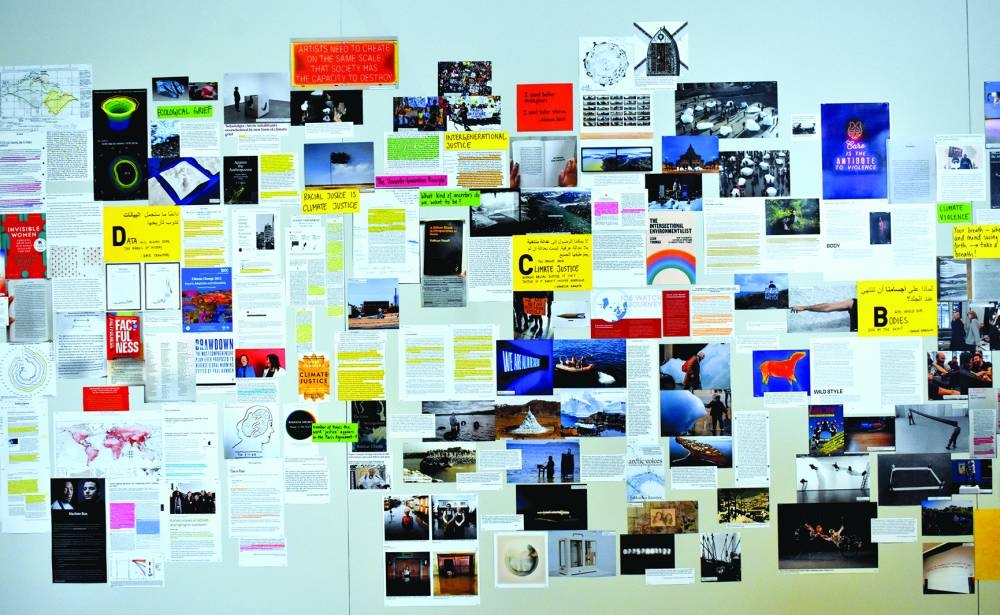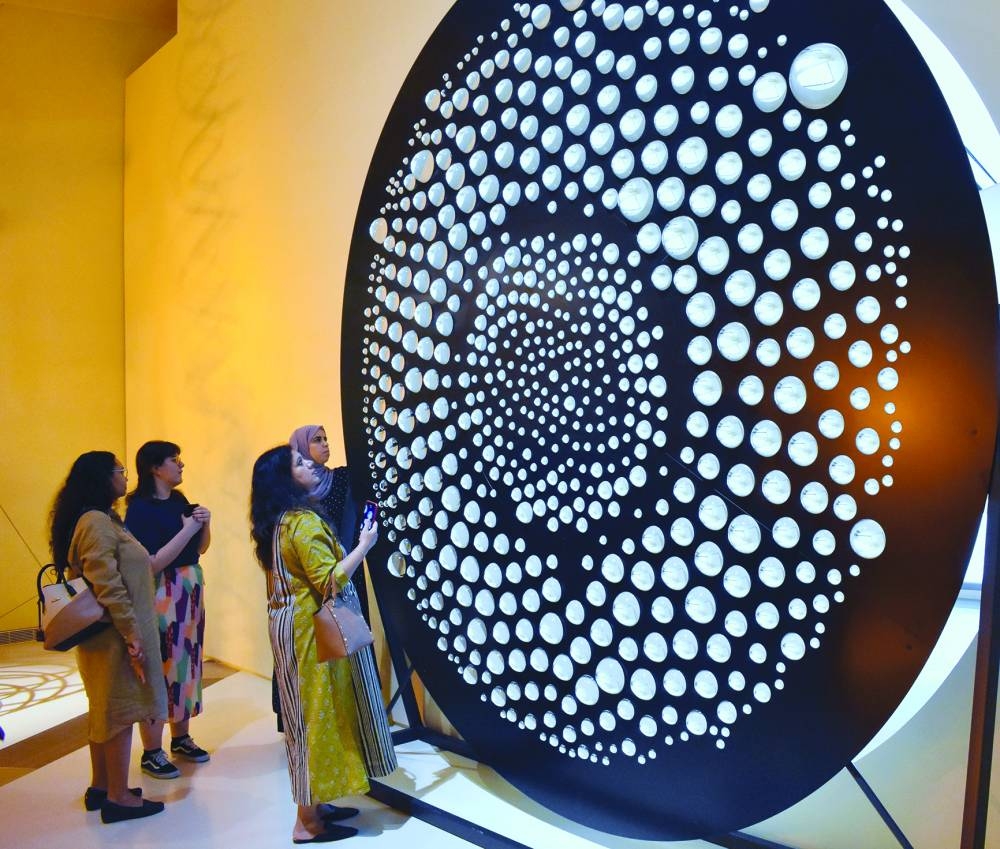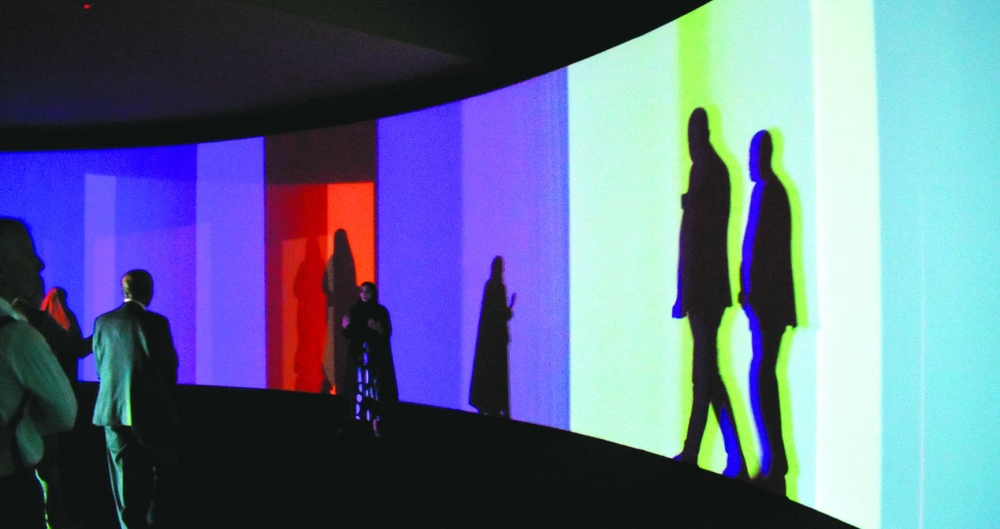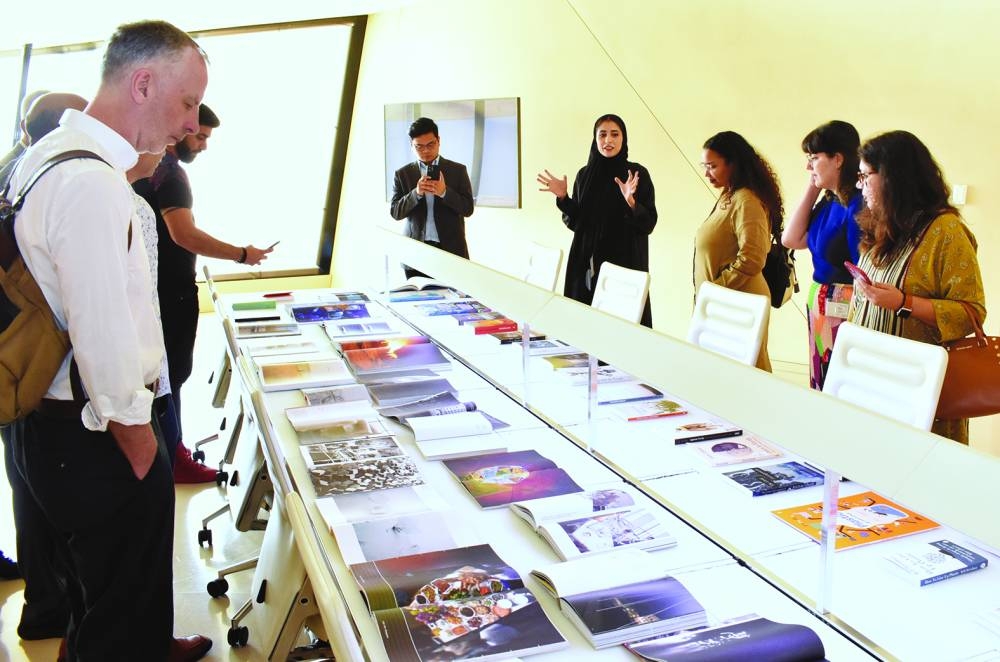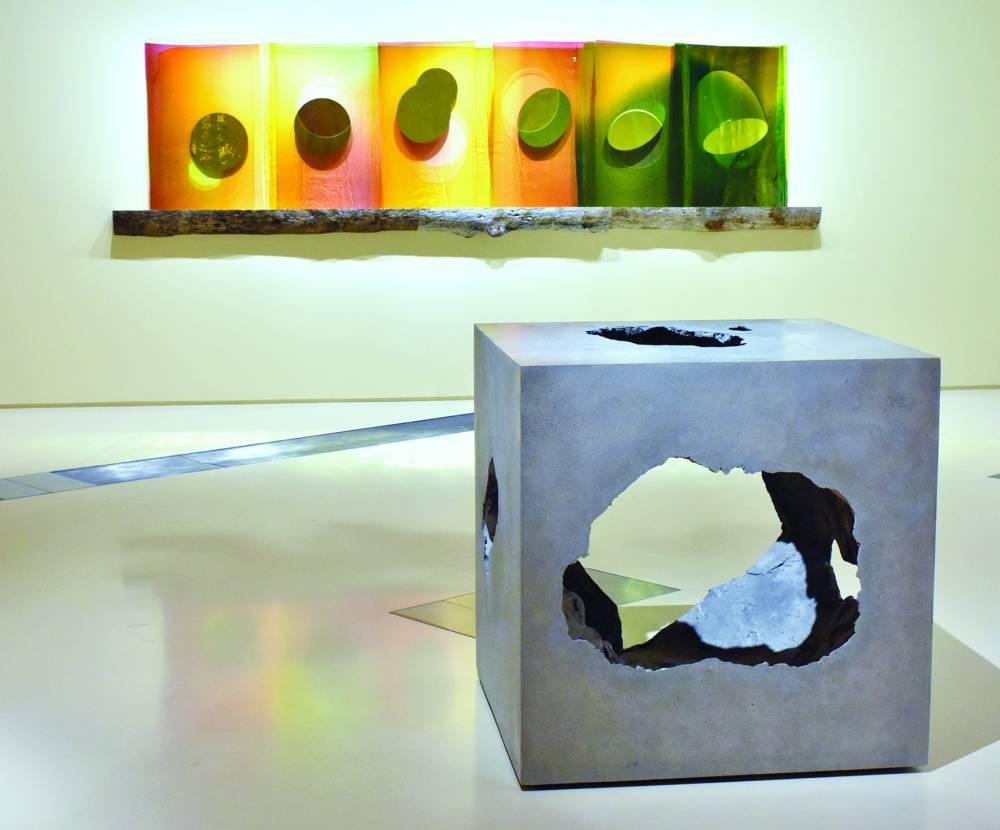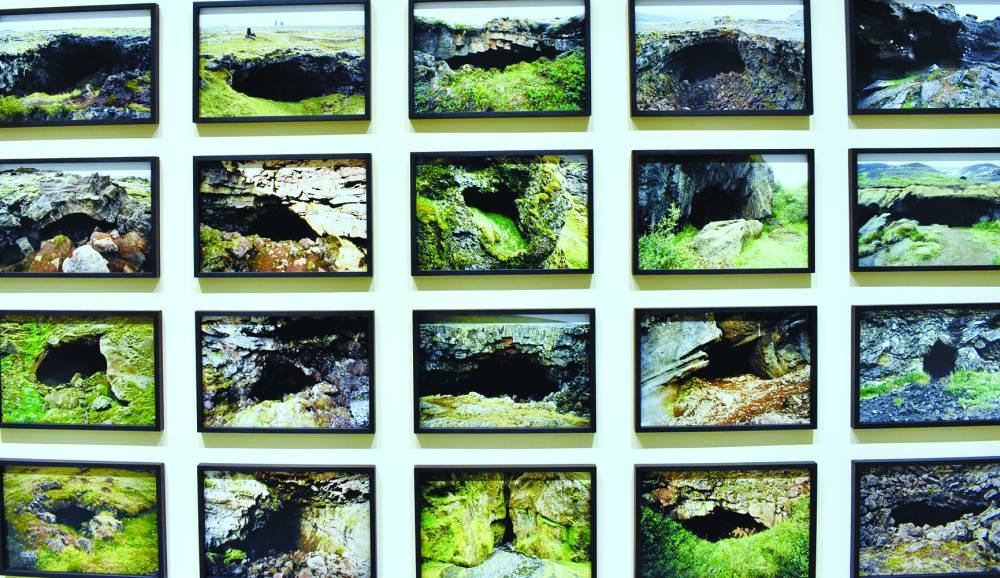Qatar Museums is presenting 'The Curious Desert', a new exhibition conceived by Olafur Eliasson for a site in the desert outside of Al Thakhira Mangrove Reserve and for the galleries of the National Museum of Qatar (NMoQ) in Doha, until August 15.
Located within and outside the museum, the exhibition includes new site-specific works that continue to explore the Icelandic-Danish artist’s abiding interests in light and colour, geometric studies, ecological awareness and more-than-human relationships.
The exhibition is presented as part of Qatar Creates, the year-round national cultural movement that curates, promotes and celebrates the diversity of cultural activities in Qatar.
HE Sheikha Al Mayassa bint Hamad bin Khalifa al-Thani, Chairperson of Qatar Museums, said: “'The Curious Desert' by Olafur Eliasson illustrates the power and problem-solving ability of art. Olafur’s profound body of work, including the new installations in the Qatari desert, opens an important dialogue about the environment, one of the most pressing topics of our time, in the context of our nation’s natural landscapes. This exhibition is unique in its presentation, which exists both inside and outside of the National Museum of Qatar, to further demonstrate how art is not confined to galleries, but is around us, everywhere, to inspire and educate.”
Eliasson said, “It is an extraordinary opportunity to create artworks for the sabkha near Al Thakhira Mangrove Reserve. The sun, the wind, the nearby lagoon saltwater – they all help co-produce the artworks that visitors will encounter here. I hope the artworks in turn may sensitise people to the singular landscape and to the more-than-human agencies at work. The other half of my exhibition, at the National Museum of Qatar, is an assembly of embodied thoughts and actions from over 25 years of working as an artist. These two naturalcultural sites enrich each other – together they make up 'The Curious Desert'.”
Located in a sabkha habitat some 64km northeast of Doha, near the Al Thakhira Mangrove Reserve, 12 temporary pavilions enclose a series of new, experimental artworks that respond to the ephemeral natural phenomena of the local environment, such as sunlight, wind and water.
The first three outdoor pavilions explore optical phenomena, making use of rainbows, shadows and mirrors to create mesmerizing effects, while pavilions five through seven contain innovative drawing machines that enlist the elements of the sabkha habitat to create artworks that will later be displayed within the exhibition at NMoQ. The final three pavilions bring this environment into dialogue with others, with materials such as obsidian and glacial mud from Iceland. Among the projects located in the 12 desert pavilions are:
* Rainbow incubator: 11 prisms, arranged along the top of a reflective sphere according to the path of the sun at Al Thakhira, bend and break the daylight entering the sphere, causing it to appear at different times of the year as a perfectly circular rainbow.
* Saltwater-drawing observatory: two circular canvases – one white and the other black – turn slowly on motors as water, mixed with black and white pigments respectively, drips down onto the spinning surfaces. The wind causes the drawing utensil to move across the surface of the turning page, leaving undulating marks upon the surface. The drawings, portraits of the weather conditions at the location, are then periodically shown at NMoQ.
* Solar incense burner: a single glass sphere uses the rays of the sun to ignite a selection of scents typical of Qatar and the region – oud, musk and amber, among others. Each burns for exactly one hour, functioning as a clock by marking the times of day in a variety of scents.
* Your obsidian garden: inspired by Eliasson’s hikes through volcanic obsidian fields in the Icelandic highlands, the artwork in this pavilion features black, shiny obsidian that stands out in stark contrast to the sandy ground, appearing to have erupted from beneath the desert.
Eliasson and Qatar Museums worked with an ecologist to conduct an extensive survey of the site near Al Thakhira to ensure the protection of its native plants and non-human inhabitants, such as the Arabian Red Fox.
Inside NMoQ, an extensive presentation of works from throughout the artist’s career invites viewers to situate themselves anew in relation to expansive light installations, photo series from Iceland, complex geometric studies, watercolours, optical devices, and a sprawling research map.
Works featured at the National Museum include:
* The living lighthouse, 2023: a new installation comprising broad bands of colourful light that crawl across the walls of this circular room, wrapping visitors in a vibrant, ever-changing light installation.
* The Research map, 2019: a sprawling pin wall that charts the research and ideas that have inspired Eliasson and his studio in recent years. The map can be seen as a space of micro-storytelling, where seemingly unrelated contents vibrate next to each other and create new meaning.
* Photography series depicting the natural landscapes of Iceland: including The glacier melt series, 1999/2019, 2019, the inner cave series, 1998, and the horizon series, 2002 – selected by the artist with the landscape of Qatar in mind.
* Artworks created by drawing and painting machines installed outdoors near the Al Thakira Mangrove Forest.
The presentation of 'The Curious Desert' follows Qatar Museums’ October 2022 unveiling of Eliasson’s outdoor installation commissioned for the desert near the Ain Mohammed heritage site in northern Qatar. The artwork, 'Shadows Travelling on the Sea of the Day (2022)', continues the Icelandic-Danish artist’s longstanding exploration of the interplay between human perception and the natural world.
A two-part film created by Tigerlily Production for Studio Olafur Eliasson and Qatar Museums captures the development of Eliasson’s installation, 'Shadows Travelling on the Sea of the Day', and his exhibition, 'The Curious Desert'. The film created for 'Shadows Travelling on the Sea of the Day' will be on view at the Mohammed Jassim Al Khulaifi Library of NMoQ, together with a special reading room dedicated to Eliasson, which collects a broad selection of catalogues covering the artist’s production, starting from the his first solo exhibition in the nineties running up to the present. The screening of the premier of the film about The curious desert will be announced during the course of the exhibition.
A richly illustrated publication – documenting the exhibition and its development in photographs and artist sketches – will be available from late summer. The book will contextualise the exhibition, with a special focus on Eliasson’s site-specific installations in the Qatari desert. Throughout this publication, themes explored will raise pertinent questions around the global climate emergency, including vulnerability, responsibility and urgency. The book will be available in English and Arabic.
Qatar
New exhibition explores 'The Curious Desert'
Qatar Museums presents the new exhibition conceived by Olafur Eliasson for a site in the desert outside of Al Thakhira Mangrove Reserve and for the NMoQ galleries in Doha, until August 15

HE Sheikha Al Mayassa bint Hamad bin Khalifa al-Thani and other engaged in a discussion. Supplied picture
